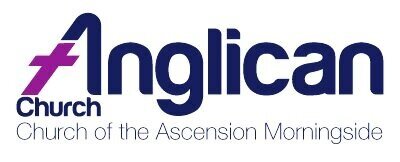What if I began the Mass and said, “Hi God, its Marty, how are you going, we are all here today”? Of course we would say that is inappropriate language. But what is appropriate language?
The life of the Early Church for three hundred years was fraught with persecution and execution. So they tried to remain hidden from the Roman Imperial authorities – but many died refusing to compromise their faith in the Crucified an Risen Christ, because He died for them. So the Christian faith to them was amazing, beautiful and true. It was an amazing treasure which opened their eyes to the wonder of creation and splendour of life. Of course, that all exploded in a life of creativity when Constantine the Great recognised the Christian faith. An energy that burst in creativity in making present in worship the wonder of faith in Christ. Now they were given magnificent Basilicas (the kings hall). Now the Mass could be presented in all its majesty and grandeur, following the worship in the Book of Revelation. From the time of Gregory the Great, Christian music, vestments, and beautiful churches flourished - but what about language – how do you speak to the King of kings and Lord of Lords?
To start of it was quite easy, use the Greek of the New Testament. It was originally language of the soldiers of Alexander the Great, known through the known world. However, it was Christianised by the Saint Paul in his letters, the Gospel writers, but especially Saint John. We hear the beauty of his imagery and poetry, even in English, every time we hear it in the Last Gospel at Mass. This was no longer the rough coarse language of soldiers. Latin was more difficult, and it took a couple of centuries to produce a form of Latin, which had all its pagan associations eliminated But it was not the Latin of every day Romans. It was dignified and reverent for worship in speaking to the Lord.
It is a mistake to think that our Books of Common Prayer (1549, 1552, 1662, 1928, and the English Missal from 1914) was a radical change. No. Cranmer used a high form of English, more suited to the Royal Court than the market place, for we are speaking to God our Father, and Christ our King. Archbishop Cranmer had the knowledge of Greek and Latin Christian worship to know what was needed – a continuity of reverence, veneration and devotion. The same is true of the Authorised Version of the Bible (King James). They used a form of English that was spoken of one hundred year before their time. Understandable, but different – but they went further. Each book was read out aloud to hear what it sounded like – for it must be beautiful and inspiring to hear as well as read.
There is something else we need to understand, originally the readings were done facing the Altar. It was sung, not said, because the readings were done as an act of worship to Our Lord, not for the edification of the congregation, and the congregation facing East shared in the act of worship. Another factor was the same readings were done each year around the same time of the year, so that it became a part of you, seeping into your bones and your heart over decades of listening – that cannot happen with the new three year lectionary, as it takes four years for a reading to be repeated. Repetition used to be the basic principle of education. - and Bible study at home is for understanding.
So we follow all of this in our worship at Morningside – we enter into a beautiful, church that smells like a church through the use of incense. The High Altar as the focus of our worship, which also has an impact different from every building and home in Brisbane. For here we are to worship in the tradition of the Mass that goes back to the time of freedom under Constantine and of Gregory the Great – we are linked to the spiritual identity of centuries of faithful Christians and Saints. We are literally orientated to the Holy Land of Our Lord, where he will return again.
